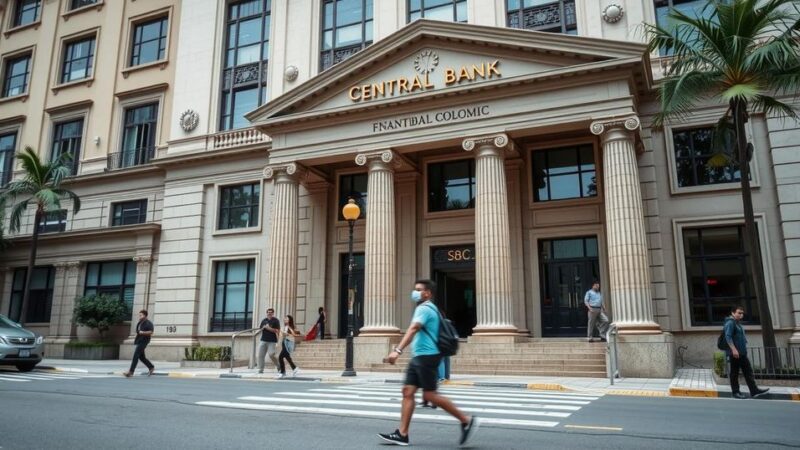Amidst the ongoing war in Sudan, gold smuggling along the Egypt-Sudan border has surged, involving tens of thousands of miners and organized criminals. New mining sites have emerged in both Egypt and Sudan, driven by economic necessity and facilitated by local tribes. As Egypt’s demand for gold rises, authorities are accused of ignoring illegal activities, leading to escalating smuggling operations in the region. Sudanese miners prefer selling their gold in Egypt due to higher prices compared to Sudan, fueling illicit trade networks.
The ongoing conflict between the Sudanese army and Rapid Support Forces (RSF) has catalyzed a flourishing gold smuggling industry along the Egypt-Sudan border. Tens of thousands of individuals, including miners from various countries, are engaged in this illicit trade, constituting a complex network of organized crime. The region, characterized by traditional mining hotspots in southern Egypt and a myriad of newly opened mining sites, has attracted both local and international players in the gold market, with Egypt recently expanding its mining initiatives in the Eastern Desert. In the Nubian region, Egypt is home to 125 traditional mining locations, particularly in the Eastern Desert — a vast area harboring potential gold deposits. The primary mining companies in Egypt, including state-owned Shalateen and Hammash Misr, alongside multinational Centamin’s Sukari, are actively involved in gold extraction. Reports indicate that since the onset of the armed conflict in Sudan, unauthorized mining activities have intensified, particularly centered in Aswan province, where local miners operate without governmental oversight. On the Sudanese side, mining developments have accelerated in states such as Red Sea and northern River Nile, largely due to the logistical advantages presented by proximity to the Egyptian border. Sudanese miners have noted the success of newly tapped mining areas, highlighting sites that have emerged amid the instability. Specifically, Sudanese miner Ibrahim referenced the geography that facilitates the movement of gold, asserting, “There are new mining areas opened or old areas expanded in the Red Sea state near the desert that runs between Egypt and Sudan.” Moreover, the smuggling of gold from Sudan to Egypt has become commonplace, as established routes and organized gangs facilitate these operations. Often, gold is exchanged for various goods, including arms and fuel. Intriguingly, four tribes—Ababda, Rashaida, Bishari, and others—play crucial roles in the smuggling endeavors, utilizing their knowledge of the terrain. A Sudanese miner stated, “I send my gold through those strong tribal men, who know the secret routes through the mountains and deserts.” As the demand for gold in Egypt continues to surge, driven by economic necessity and the devaluation of the national currency, authorities appear to have turned a blind eye to these illegal practices. In an effort to bolster reserves, Egypt’s gold production has significantly increased, experiencing a notable rise in revenues over recent years. Notably, gold prices in Egypt have soared compared to international rates, thus driving more Sudanese miners and traders to explore profitable avenues through smuggling operations. This situation underscores a broader trend within the region, where the intersection of conflict, organized crime, and economic aspirations creates a dangerous but lucrative environment for both miners and smugglers alike.
The article discusses the escalating gold smuggling activities on the Egypt-Sudan border amidst a protracted conflict involving the Sudanese army and the RSF. With the war persisting for over 18 months, many individuals have become involved in gold mining, which has evolved into a complex web of organized crime exacerbated by lax government oversight. The article highlights the geography of the Eastern Desert region in Egypt, known for its abundant natural resources and traditional mining sites, along with the rising influence of international stakeholders in gold extraction in this economically strained area. As Sudanese mining operations have surged, driven by conflict and economic instability, many miners seek to capitalize on the potential profits through illicit means, primarily smuggling gold into Egypt. The dynamics of smuggling reveal a deep-seated relationship between local tribes and smuggling practices, as well as the role of economic pressures in shaping these activities. Furthermore, Egypt’s strategic focus on expanding its gold reserves adds a troubling facet to the ongoing situation, creating a demand-driven environment that fuels smuggling operations.
The intersection of conflict, organized crime, and economic pressures in the Egypt-Sudan border region has catalyzed a significant gold smuggling industry in response to the ongoing war between the Sudanese army and RSF. As gold extraction intensifies with the involvement of local miners and international companies, the demand for gold in Egypt is burgeoning, leading to an increase in smuggling activities. This trend underscores a complex reality where the quest for economic stability entangles diverse actors engaged in illicit practices, reflecting broader issues of governance, legality, and survival in crisis-ridden areas.
Original Source: www.middleeasteye.net







